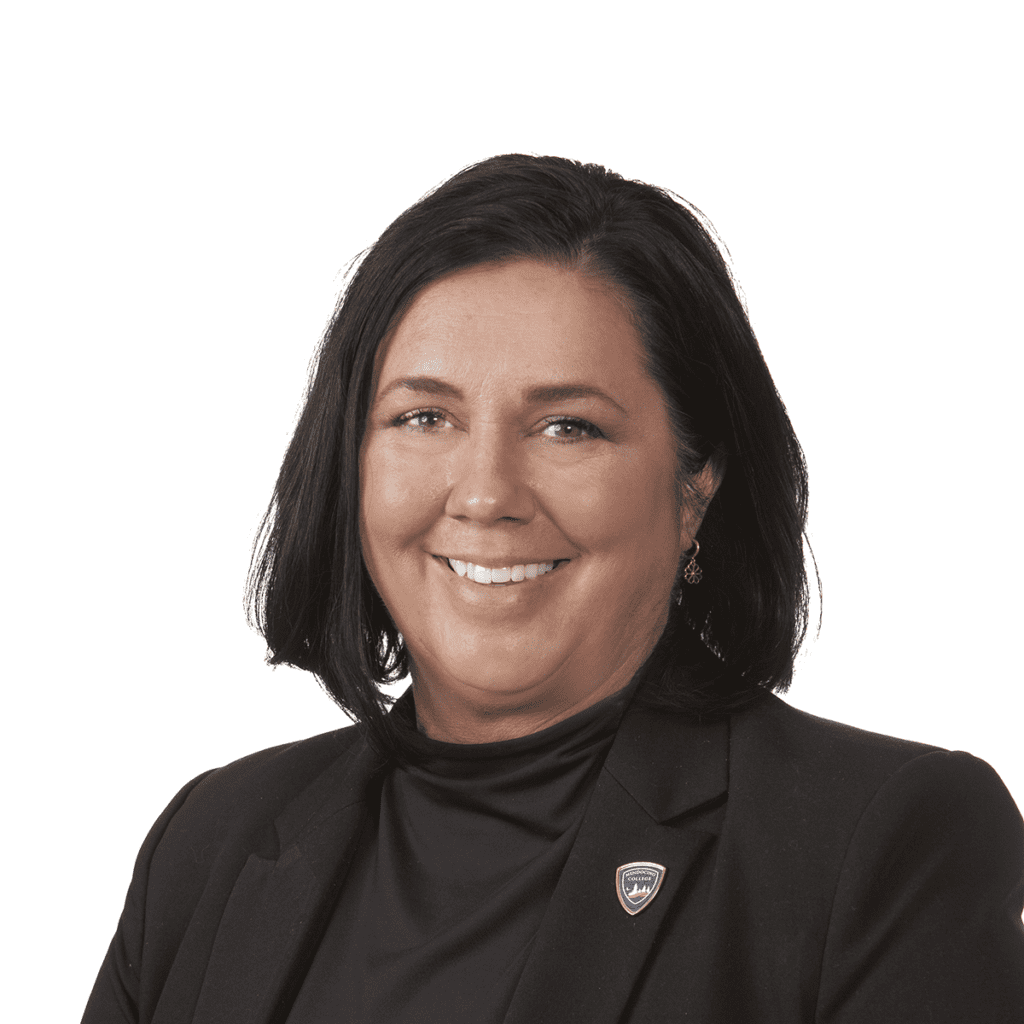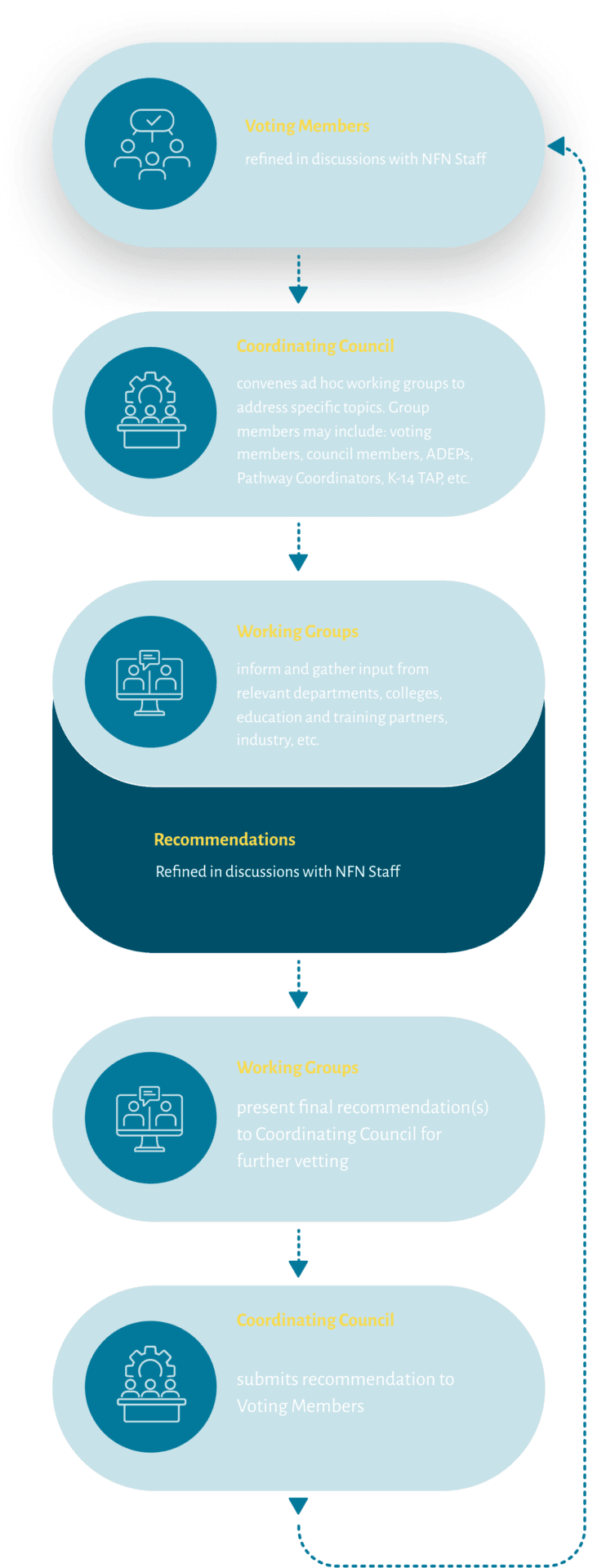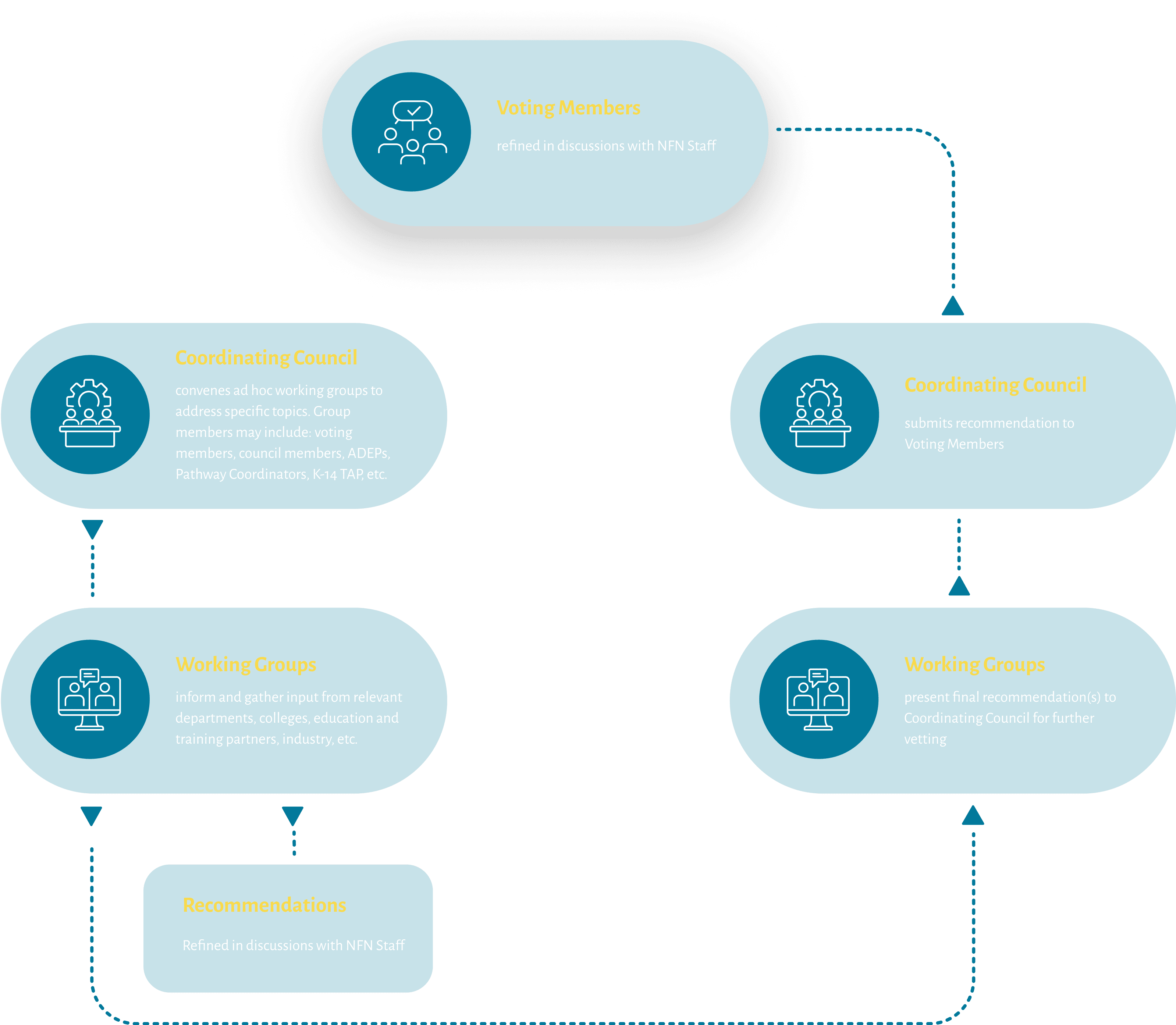About
Members

Vacant
EWDAC
|

Vacant
CEO-North
|

Sita Williams
WIB Rep-Far North
Workforce Alliance/North Bay | swilliams@workforcealliancenorthbay.org

Steven Casperite
Adult Education Representative
Placer School for Adults | scasperite@puhsd.k12.ca.us

Vacant
Student/Alumni/Far North

Crystal Morse
VP of Instruction & Student Development
College of the Redwoods | crystal-morse@redwoods.edu

Dana Wassmer
AVP of Instruction, Economic & Workforce
Cosumnes River College | wassmed@crc.losrios.edu

John Skellenger
Dean, of Instruction, Career Education
Folsom Lake College | skellej@flc.losrios.edu

Jennifer Laflam
AVP of Workforce Development & CTE
Sacramento City College | laflamj@scc.losrios.edu

Amy Schulz
Dean of Career, Continuing & Technical Education
Sierra College | aschulz1@sierracollege.edu

Karen Hubbard
Director of Employer Partnerships
Health/Public Safety
American River College | HubbarKE@arc.losrios.edu

Montel Vanderhorck
Director of Employer Partnerships
Generalist
College of the Redwoods | mvanderhorck@shastacollege.edu

Mark Endraske
Director of Employer Partnerships
Generalist
College of the Siskiyous | mendraske@shastacollege.edu

April Vera
Director of Employer Partnerships
Energy, Construction, Utilities
Cosumnes River College |
veraa@crc.losrios.edu
Emily Avlen
Director of Employer Partnerships
Generalist
Lassen Community College | eavlen@shastacollege.edu

Pamela Heston
Director of Employer Partnerships
Generalist
Mendocino College | pheston@shastacollege.edu

Julie Muir
Director of Employer Partnerships
Automation
Sacramento City College | MuirJ@scc.losrios.edu

Mark Endraske
Director of Employer Partnerships
Generalist
Shasta College | mendraske@shastacollege.edu

Alena Anberg
Director of Employer Partnerships
ICT & Business
Woodland College | aanberg@shastacollege.edu
Statewide K12 SWP listserv
Who We Are
The North Far North (NFN) Regional Consortium (NFNRC) comprises 15 community colleges serving 22 counties in the largest geographic area of the state, from the Sacramento Metro area north to the Oregon border, and from the North Coast across the Cascade and Sierra Nevada Mountain Ranges to the Nevada border.
NFN Colleges
American River College, Butte College, College of the Redwoods, College of the Siskiyous, Cosumnes River College, Feather River College, Folsom Lake College, Lake Tahoe Community College, Lassen Community College, Mendocino College, Sacramento City College, Shasta College, Sierra College, Woodland Community College, and Yuba College.
Counties served by the NFN Regional Consortium
- North: Colusa, El Dorado, Nevada, Placer, Sacramento, Sutter, Yolo, Yuba
- Far North: Butte, Del Norte, Glenn, Humboldt, Lake, Lassen, Mendocino, Modoc, Plumas, Shasta, Sierra, Siskiyou, Tehama, Trinity
The work of the NFNRC contributes to and is aligned with the California Community College Chancellor’s Offices’ Vision for Success, Strong Workforce Program and goals.
The NFNRC uses goals set by the Chancellor’s Office to guide its investment and program strategies:
- Increase degree and certificate attainment
- Reduce excess unit accumulation
- Increase transfers to four-year institutions
- Close equity gaps
- Secure gainful employment
- Close regional achievement gaps
Mission
- Provide access to high quality post-secondary educational programs for immediate employment in living wage careers.
- Promote economic and workforce development that is responsive to local employers.
- The demand for workforce training to collectively support regional needs.
- Advocate for policy and legislative actions that support inclusive workforce training and economic development.
Purpose
California’s Strong Workforce Program (SWP) is an initiative designed to expand career technical education (CE) programs in the state’s community colleges, further improve response to workforce demands, and deliver the skill sets required by our local employers. To implement the SWP, seven regional consortia were established by the California Community College Chancellor’s Office to provide leadership in the creation and implementation of career education. The North Far North Regional Consortium is charged with coordinating the planning and implementation of the program in the North Far North (NFN) Region of California.
History
In the early 90s the consortium was established on these seven principles:
- Build on the efforts of states and localities to develop challenging academic and technical standards to assist students in meeting such standards, including preparation for high skill, high wage or high demand occupations in current or emerging professions.
- Promote the development of services and activities that integrate academic, CTE instruction and link secondary and post-secondary education for participating CTE students.
- Increase state and local flexibility to provide services and activities designed to develop implement and improve CTE, including tech prep education.
- Ensure the dissemination of information on best practices that improve CTE programs, services and activities.
- Provide technical assistance that:
- A) Promotes leadership, initial preparation, and professional development at the state and local levels, and
- B) Improves the quality of CTE teachers, faculty, administrators, and counselors.
- Support partnerships among secondary schools, post-secondary institutions, baccalaureate degree granting institutions, local workforce investment boards, business, and industry.
- Provide individuals with opportunities throughout their lifetimes to develop, in conjunction with other education and training programs, the knowledge and skills needed to keep the United States competitive.







































